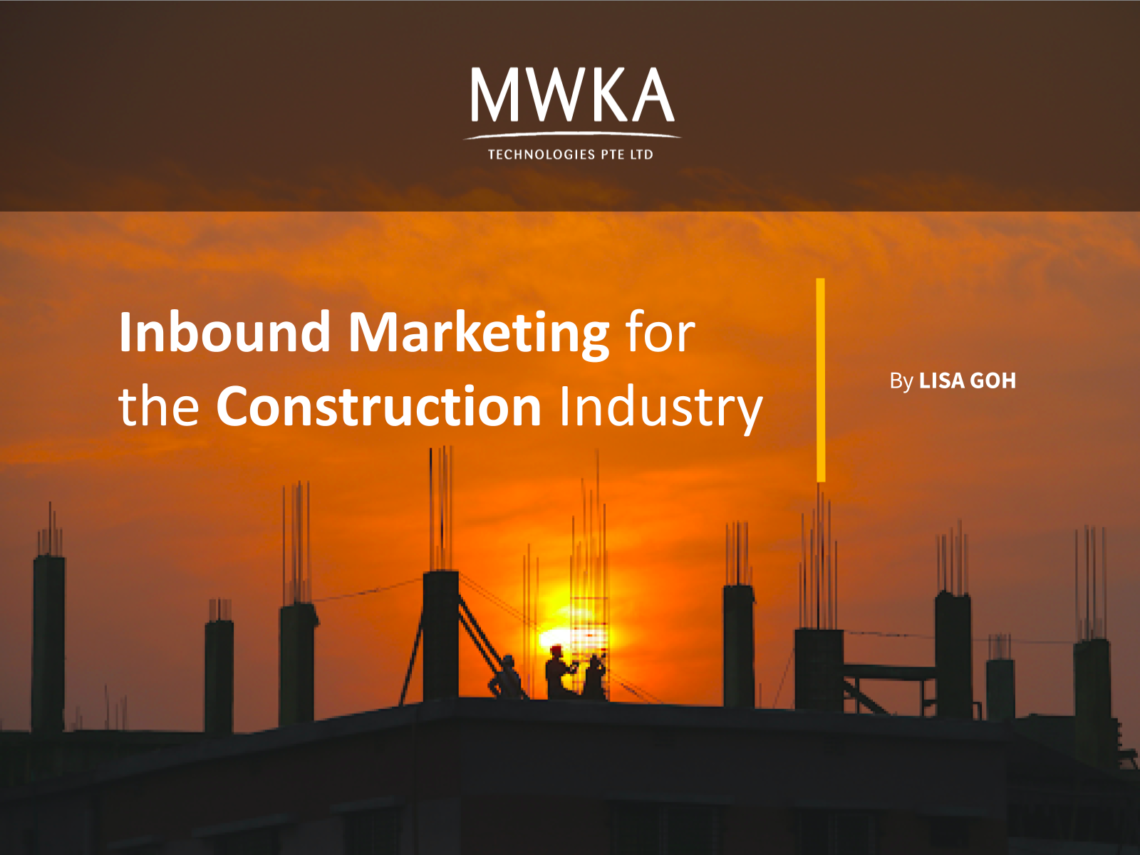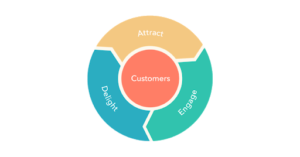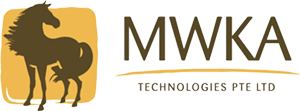
Successful construction companies have traditionally relied primarily on personal relationships/ recommendations, professional networks, and word-of-mouth referrals to gain new business opportunities. While this is still important, more and more companies in the construction industry are now including inbound into their marketing strategy. In the United States, a survey by the Construction Marketing Association found that 82% of construction firms there have employed some form of inbound marketing.
So what is Inbound Marketing, and how does it work?
As its name suggests, inbound marketing is a business methodology that attracts customers and helps your organisation grow by creating value and building long-lasting relationships, be it with your leads, prospects or clients. Essentially, your goal is to empower people so that they can make informed decisions, as your walk with them on their buyer’s journey.

HubSpot’s inbound marketing can be applied in three ways:
Attract: Drawing people in with valuable content and relevant information that establishes you as a go-to resource and advisor.
Engage: Understanding their pain points and goals, and providing them with insights and solutions that work, so that they are more likely to buy from you.
Delight: Providing help and support to empower your customers to find success with their purchase.
When your customers are happy with their purchase, they in turn, will share that success with other people, drawing more prospects to your business. This self-sustaining loop will drive the momentum that will help your business become more sustainable and grow.
How you can do Inbound for your construction business:
- Thought leadership: In an industry where purchases can be complex and expensive, a good way of establishing your business as an industry expert is by providing informative and valuable content – through studies, whitepapers, videos or articles. Providing educational information increases trust and confidence in your brand, and puts you in a good position for brand recall when your readers are ready to make a purchase.
- Social media: Social media is a great way to reach out to other construction professionals and potential clients alike. Linked In, Facebook, Instagram, Twitter and YouTube are some social media platforms that you can use to increase your brand awareness online, and increase engagement with potential or existing clients. It’s also a great way to direct traffic back to your website.
- Search Engine Optimisation (SEO): Use relevant and specific keywords in your online content – whether on your website or social media platforms. This will help increase your organic search rankings, allowing readers to find you more easily when they are searching for information online.
- Search Engine Marketing (SEM): Unless you have a strong SEO, it’s also good to consider SEM, which is paid search advertising. This allows your business to rank on the first page of search, giving you a lot more visibility, and is very beneficial to construction companies which are willing to invest.
- Online reviews: Similar to traditional word-of-mouth referrals, online reviews are a fantastic way of how your happy clients can share their experiences with others in their digital networks, thereby increasing brand awareness and reach of your business.
- Call-to-action (CTA): Use CTAs on all your content. Whether it’s getting your reader to leave a comment, sign-up to your mailing list, or to reach out to you, this helps to create conversions. Place the CTAs in strategic positions where they are easily visible, and likely to be filled out.
Example of how Inbound Marketing worked for a construction company in the United States
Chinburg Properties, Inc. is a fully integrated development and construction firm with over 30 years of experience in New Hampshire and Maine. According to its website, “Chinburg Properties has grown from a small family business to the largest builder of homes in the Seacoast region”. In addition to new construction, the Chinburg portfolio of services includes: construction management, renovation and restoration, commercial and residential rentals, and property management.
In 2013, Chinburg hired Vital (a digital marketing agency and HubSpot partner) to drive more traffic to their website, and drive more leads for their business.
At the time, Chinburg Properties were also developing historic mill buildings into residential and commercial rental spaces. At the start of the project, they were managing six rental properties and each of these spaces had its own website with its own individual URL.
Chinburg decided to consolidate all the websites into one, and united all six of these properties under one consistent brand architecture. Once that was done, Vital implemented a content strategy focused on new blog posts and web pages.
The results?
Within a year, Chinburg Properties had a 178% increase in overall traffic, and a 77% increase in overall leads.
Amidst the COVID-19 crisis, we are offering SMEs inbound-marketing packages starting from SGD300 / RM920/ USD220 / EUR195 per month. If you are interested to learn more about how inbound marketing can help you increase your online traffic and leads, please contact us for a complimentary consultation at hello@mwka.tech or schedule an appointmenton our calendar here.
…………………..
MWKA Technologies is a remote-friendly agile strategy and innovation boutique consultancy. We empower clients in Europe + Asia Pacific to unlock 10x value by transforming customer experience + facilitating sustainable change + continuous innovation.
We are a diverse team of experienced IT, legal, finance & compliance professionals who have the mindset, skillset and commercial acumen you need to help you succeed.
………………….
Lisa is the Content Strategist for MWKA Technologies, with over 10 years of experience in journalism and media. She loves writing, creating and developing content, and believes wholeheartedly in the power of storytelling. If there’s coffee and cake, all the better.
By Lisa Goh

Write a comment: